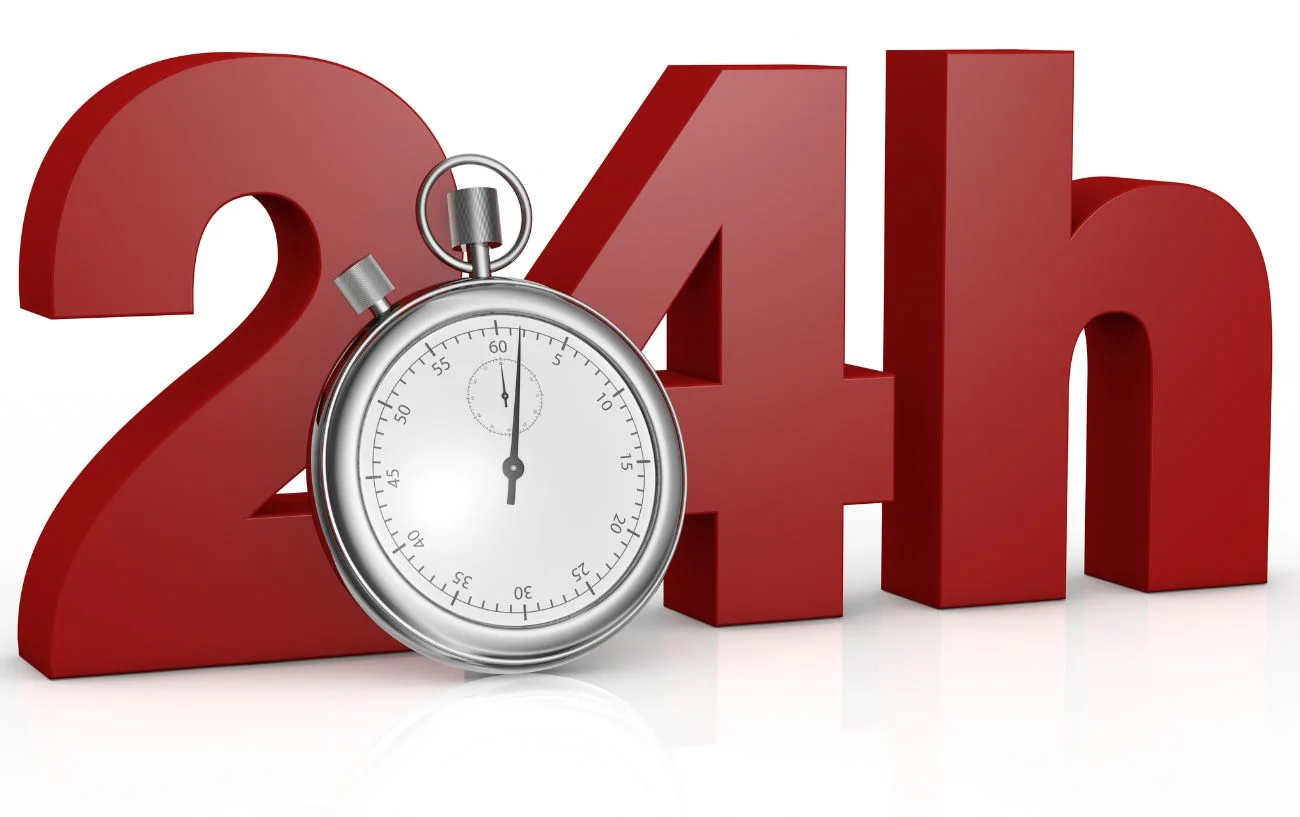Intermittent fasting, a practice that alternates between periods of eating and fasting, has become a cornerstone in the health and wellness community. Among the various fasting methods, the 24-hour fast once a week stands out for its simplicity and potential benefits.
Now, we will explore the multifaceted advantages of this fasting approach, from its physiological impacts to its psychological and environmental implications.
Historical Context

Throughout human history, fasting has been woven into the fabric of many cultures and religious practices. Ancient civilizations, from the Greeks to the Egyptians, recognized fasting’s therapeutic properties.
Religious observances, such as Ramadan in Islam, Lent in Christianity, and various fasts in Buddhism and Hinduism, have always emphasized the spiritual and physical purification achieved through abstaining from food.
In the modern era, while the spiritual aspect remains for many, there’s a growing emphasis on the health benefits of fasting, supported by a burgeoning body of scientific research.
Physiological Benefits

Our bodies are intricate systems that respond dynamically to our dietary habits. Fasting, especially for a 24-hour period, can trigger a cascade of physiological responses that enhance cellular health, metabolic efficiency, and overall well-being.
- Autophagy: Beyond mere cellular cleanup, autophagy is a sophisticated recycling system. A 24-hour fast can amplify this process, ensuring cells are rejuvenated and harmful components are eliminated.
- Metabolic Health: Fasting isn’t just about insulin sensitivity. It also plays a role in optimizing hormone levels, ensuring efficient energy use, and potentially reducing the risk of metabolic syndromes.
- Weight Management: Beyond calorie restriction, fasting can lead to hormonal changes that promote fat burning while preserving lean muscle mass.
- Heart Health: The heart benefits from fasting in multifaceted ways. Reduced oxidative stress and inflammation, coupled with improved blood lipid profiles, contribute to overall cardiovascular well-being.
- Brain Health: Fasting’s impact on the brain goes beyond BDNF. It also promotes the release of other neuroprotective proteins and can enhance neural plasticity, which is vital for learning and memory.
Psychological and Emotional Benefits
Beyond the tangible physical outcomes, fasting offers a profound journey into the realms of the mind and emotions. The act of abstaining from food can sharpen mental clarity, deepen self-awareness, and foster emotional resilience, enriching our overall psychological landscape.
- Mindfulness and Awareness: Fasting isn’t just a physical journey; it’s a mental one. It challenges our relationship with food, making us more conscious of when and why we eat.
- Mental Clarity: The absence of post-meal sluggishness and the reduced energy expenditure on digestion can lead to a clearer, more focused mind.
- Emotional Resilience: Embracing the discomfort of hunger teaches patience, discipline, and the ability to differentiate between emotional and physical hunger, enriching our emotional intelligence.
Digestive System Reset

The human digestive system is a complex and continuously active mechanism, processing everything we consume. Over time, due to constant intake, especially in diets rich in processed foods, the system can become overburdened, leading to inefficiencies and discomforts like bloating, gas, and indigestion.
A 24-hour fast serves as a valuable pause, allowing the digestive tract a much-needed respite from its relentless task of breaking down and assimilating food. During this fasting period, the stomach and intestines get a chance to heal and rejuvenate.
Without the continuous influx of food, the stomach acid levels can normalize, potentially alleviating issues like acid reflux. The intestines, too, benefit from this break. The reduced digestive activity can help in repairing the gut lining, which might be damaged due to various factors like stress, medications, or certain foods.
This repair process is crucial for preventing leaky gut syndrome, where undigested food particles and toxins can enter the bloodstream, leading to inflammation and other health issues. A 24-hour fast can have a positive impact on the gut microbiome, the community of beneficial bacteria residing in our intestines.
These bacteria play a pivotal role in our overall health, influencing everything from digestion to mood. A fasting period can help in rebalancing this microbial ecosystem, promoting the growth of beneficial bacteria while curbing the proliferation of harmful ones.
As the gut flora stabilizes, individuals might experience improved digestion, reduced gut-related inflammation, and even enhanced mood and mental clarity, given the gut-brain connection.
Environmental and Ethical Benefits

Every choice we make, including our dietary habits, has a ripple effect on the environment. Adopting a 24-hour fast once a week can significantly reduce our environmental footprint.
The production, transportation, and consumption of food, especially resource-intensive items like meat and dairy, contribute substantially to greenhouse gas emissions, water usage, and deforestation.
By consciously choosing to abstain from food for one day each week, we indirectly reduce the demand on these resources, leading to a cumulative positive impact on the environment over time.
From an ethical standpoint, the global food system is fraught with challenges, from wastage to unequal distribution. It’s estimated that roughly one-third of the food produced globally is wasted, while millions face food insecurity daily.
By fasting for 24 hours weekly, we not only reduce our personal contribution to this wastage but also make a symbolic stand against the excesses of modern consumption patterns. This act, though individual, can inspire collective consciousness about the value of food and the ethical implications of our consumption habits.
The act of fasting can foster a deeper appreciation for the food we consume. In a world where many have the privilege of eating out of habit rather than necessity, abstaining from food can serve as a poignant reminder of its value.
This heightened awareness can lead to more mindful consumption, where we make ethical choices that prioritize sustainable and humane food production methods, further aligning our dietary habits with the well-being of the planet and its inhabitants.
Practical Tips for a 24-Hour Fast

While the body adjusts to the absence of caloric intake, it’s essential to ensure that the experience is both manageable and beneficial. From the foods you consume before the fast to the activities you engage in during this period, every choice can influence the success and ease of your fasting journey.
Tips for sustaining a 24-Hour Fast:
- Preparation: Begin with a nutrient-dense meal that includes a balance of proteins, healthy fats, and complex carbohydrates to ensure sustained energy.
- Hydration: Drink plenty of water throughout the fast to stay hydrated and help curb hunger pangs.
- Electrolyte Balance: Consider adding a pinch of Himalayan pink salt or other natural salts to your water to maintain electrolyte balance.
- Stay Occupied: Engage in light activities like reading, meditation, or gentle walks to distract from hunger and maintain energy levels.
- Avoid Overexertion: Refrain from intense workouts or strenuous activities that might drain energy rapidly.
- Listen to Your Body: If you feel extremely fatigued, dizzy, or unwell, consider breaking the fast with a small, nutritious snack.
- Mindful Break: When ending the fast, start with easily digestible foods like broths or fruits before transitioning to more substantial meals.
- Rest: Ensure you get adequate sleep the night before and during the fasting day to aid the body’s natural repair processes.
- Avoid Temptations: Stay away from food-centric environments or activities that might tempt you to break the fast prematurely.
- Journaling: Document your experience, noting how you feel physically and emotionally. This can provide insights for future fasts.
- Support System: Inform a friend or family member about your fast or join a fasting community for motivation and guidance.
- Mindfulness Practices: Engage in meditation or deep breathing exercises to connect with your body and manage potential stress or discomfort.
Potential Risks and Considerations

While the 24-hour fast once a week offers numerous benefits, it’s not without potential risks and considerations. For certain individuals, such as those with underlying health conditions, pregnant or breastfeeding women, or those with a history of eating disorders, fasting might pose significant health challenges.
Even for the general population, diving into a fasting regimen without proper preparation or knowledge can lead to adverse effects like dizziness, extreme fatigue, or nutrient deficiencies.
It’s crucial to approach fasting with a balanced perspective, understanding both its advantages and potential pitfalls.
| Potential Risks |
|---|
| Risk of nutrient deficiencies if not balanced with nutrient-rich meals on non-fasting days |
| Potential for dizziness or lightheadedness, especially if not adequately hydrated |
| May exacerbate underlying health conditions, especially in individuals with metabolic disorders |
| Not suitable for pregnant or breastfeeding women due to increased nutritional needs |
| Risk of triggering or exacerbating disordered eating patterns or behaviors |
| Possible interference with medications or treatments that require food intake |
| Overcompensation on non-fasting days leading to overeating or unhealthy food choices |
FAQs
Will I lose weight with a 24-hour fast?
While weight loss can be a result due to reduced calorie intake, the primary benefits of a 24-hour fast extend beyond just weight management.
Is it safe for everyone to do a 24-hour fast?
While many people can benefit from intermittent fasting, certain groups, like pregnant or breastfeeding women, individuals with specific medical conditions, or those with a history of eating disorders, should consult with a healthcare professional before starting.
Will I lose muscle mass during the fast?
A single 24-hour fast is unlikely to lead to significant muscle loss, especially if you maintain regular protein intake on non-fasting days and engage in resistance training.
Can I exercise during the fast?
Light to moderate exercise can be done, but it’s essential to listen to your body. Intense workouts might be more challenging during a fast.
Will I feel fatigued or dizzy?
Some people might experience fatigue, dizziness, or headaches, especially when new to fasting. It’s crucial to stay hydrated and consider breaking the fast if severe discomfort arises.
Closing Thoughts
The practice of a 24-hour fast once a week offers a holistic approach to health, blending ancient wisdom with modern science.
By understanding its benefits and approaching it mindfully, individuals can harness its potential to enhance their overall well-being.
If you want to read more intriguing subjects, visit our site.
